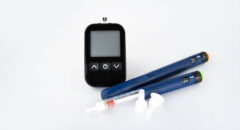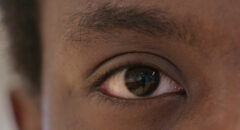
Diabetes retinopathy is the most common diabetic eye disease and a leading cause of blindness in American adults. African Americans bear a disproportionate burden of retinopathy. They are twice as likely to suffer from retinopathy as non-Hispanic whites.
It is estimated that 828,000 African Americans currently have retinopathy with projections for 2030 reaching a high of one million. Despite these dismal numbers, there is good news. You can prevent diabetic retinopathy by controlling your diabetes and learning more about the disease.
What causes retinopathy?
Retinopathy is caused by changes in the blood vessels of the retina, the lining in the back of the eye that senses light. The blood vessels in the eye are very delicate and can easily be
damaged or clogged. In some people with diabetic retinopathy, retinal blood vessels may swell and leak fluid.
In other people, abnormal new blood vessels grow on the surface of the retina. But the new ones are weak and prone to break and leak blood into your eye causing you to see spots or “floaters.” As the vessels break, scar tissue builds up, pulling the retina away from the wall of the eye. This is what causes blindness.
What are the risk factors?
If you have type 1 or type 2 diabetes, you are at risk for developing diabetic retinopathy. The longer you have diabetes, the more likely you will develop retinopathy, particularly if the diabetes is poorly controlled. Also, medical conditions such as high blood pressure and high cholesterol increase the risk of developing retinopathy.
Pregnant women face a higher risk of developing diabetes and diabetic retinopathy. If a woman develops gestational diabetes, she has a higher risk of developing diabetes as she ages.
As previously noted, the race is another risk factor. Hispanics and African Americans are at higher risk of developing diabetic retinopathy.
RELATED: Diabetic Retinopathy: 1.2 Million African Americans To Be At Risk By 2030
What are the symptoms of diabetes retinopathy?
You may not experience any symptoms in the early stages of diabetic retinopathy. There is no pain, and your vision may not change until the disease becomes severe. Even in more advanced cases, the condition may progress a long way without symptoms. This symptomless progression is why regular eye examinations for people with diabetes are so important.
When symptoms do occur, they may include:
-Blurry or double vision
-Rings, flashing lights, or blank spots
-Dark or floating spots
-Pain or pressure in one or both of your eyes
-Trouble seeing things out of the corners of your eyes
How can I prevent diabetes retinopathy?
Everyone with diabetes should have a comprehensive dilated eye exam at least once a year. However, based on your type of diabetes and the time since you were first diagnosed your health care team may suggest a different plan.
A dilated eye exam is the best way for your doctor to check for eye problems from diabetes. During dilation the pupils are widened allowing more light to enter the eye—the same way opening a door allows light into a dark room. As a result, your doctor is able to examine a larger area in the back of each eye.
You can reduce your risk for diabetic retinopathy by controlling blood glucose, blood pressure, and blood cholesterol—also known as the ABCs of diabetes. If you already have diabetic retinopathy controlling the ABCs of diabetes will slow down the progression of the disease. If you already have retinopathy, you may need to have an eye exam more often.
RELATED: Diabetic Retinopathy: 10 Things Diabetics Must Know To Protect Their Vision
For more information on diabetic eye disease, where to find an eye doctor or if you qualify for free eye exams visit EyeCare America at http://www.eyecareamerica.org or call 1-800-222-EYES (3937).

Constance Brown-Riggs, is a registered dietitian, certified diabetes educator, national speaker and author of the Diabetes Guide to Enjoying Foods of the World, a convenient guide to help people with diabetes enjoy all the flavors of the world while still following a healthy meal plan. Follow Constance on social media @eatingsoulfully








